Monitoring the effects of Plan S on Research and Scholarly Communication
10/07/2020
Plan S[1] aims for a major change in scholarly communication to full and immediate open access. This immediate access to research articles will foster more open collaboration between researchers and other independent scholars from all disciplines across the world and with analysts in and outside academia. The implementation of Plan S principles is expected to have a major impact on researchers’ publishing practices and the way in which research is conducted and assessed. Many possible impacts of Plan S were communicated in the 600 plus responses received as part of the consultation process for the Plan S Implementation Guidance[2]. Various challenges have been identified that need to be monitored and addressed, from disciplinary differences in publication cultures to global inequalities in access and funding for publication fees. A discussion on these impacts or effects is therefore in order.
To initiate the dialogue amongst stakeholders on the effects of Plan S, cOAlition S has developed a monitoring framework by which funding agencies who are signatories of Plan S can track or monitor the most significant of these effects, both positive and negative. This framework has been primarily informed by the type of data funding agencies can collect and other available data sets, such that collated data against indicators from a cross-section of Plan S signatories will inform which effects are being realised and guide how cOAlition S might mitigate these effects.
There is concern that compliance with Plan S principles may negatively affect the Early Career Researchers’ (ECRs) career paths. Although cOAlition S is taking measures to ensure that researchers are not restricted in their publication venues, many ECRs are anxious that they will not have their funders’ support to publish in their journal of choice, which may be a prestigious title not aligned to Plan S, and this may ultimately negatively impact their assessment and career progression. Because the connection of publication venue to career progression is currently strong, this effect will be monitored as a priority concern. A key consideration here is the potential effect of the implementation of responsible metrics initiatives such as DORA[3]. Given that such initiatives will not be fully implemented by 1/1/2021 when Plan S policies first become active, cOAlition S is exploring methods to obtain early signals of changes in publishing behaviour and problems encountered by researchers, as guided in the monitoring framework below.
Although initially focusing on the link between publication venues and careers, it does not in any way diminish the importance of other areas with the potential to be impacted (see monitoring framework below), such as publication costs, learned societies, and administrative burden. Towards obtaining and analysing meaningful data to enable cOAlition S funders to monitor the broad range of potential effects of Plan S identified, we will work with funders who are signatories of Plan S to identify suitable indicators, timely analysis and future actions. In this regard, it might be noted that other taskforces being established under cOAlition S are supporting elements of the monitoring framework through parallel initiatives.
The taskforce who developed this monitoring framework comprises representatives of both cOAlition S funders (ANR, ARRS, INFN, Science Europe, SAMRC, SFI, and UKRI), and Early Career Researcher groups (EuroDoc, GYA, MCAA, and YAE), thus ensuring that the monitoring framework has been informed by the broadest range of perspectives and expertise.
The Monitoring Framework
| Priority Topic | Relevant impact on |
|---|---|
| Researcher Employment & Evaluation, and Journal choice | 1. Researcher career progression. 2. Researcher geographic mobility. 3. Researcher publishing practices. 4. Collaboration between researchers (e.g. academic and non-academic; national and international collaborations). 5. Changes to the academic evaluation system. 6. The diversity of the research workforce. |
| Headline Topic (in alphabetical order) | |
| Costs & Resources | 1. Prices associated with OA publishing, and the transparency and equity of those prices. 2. Administrative burden on researchers and research support staff. |
| Dissemination | 1. Visibility and reach of research publications. 2. Nature of open repositories in aligning with Plan S mandatory technical requirements. |
| Funders | 1. Ability of funders to make a case for funding for research (e.g. to Government or Board). 2. Partnerships between research funders. |
| Research Activity | 1. Nature, ownership and sharing of intellectual property arising from research. 2. Inter- and multidisciplinary research. |
| Scholarly Publishing | 1. Changes to the sustainability of learned / scholarly societies. 2. Publisher policies and practices. 3. Diversity of publishing options available to researchers. 4. Academic publishing towards OA models. 5. Proportion of publications aligned with Plan S. |

